The truth about best-before dates: what do the labels really mean, and when is it safe to ignore them?
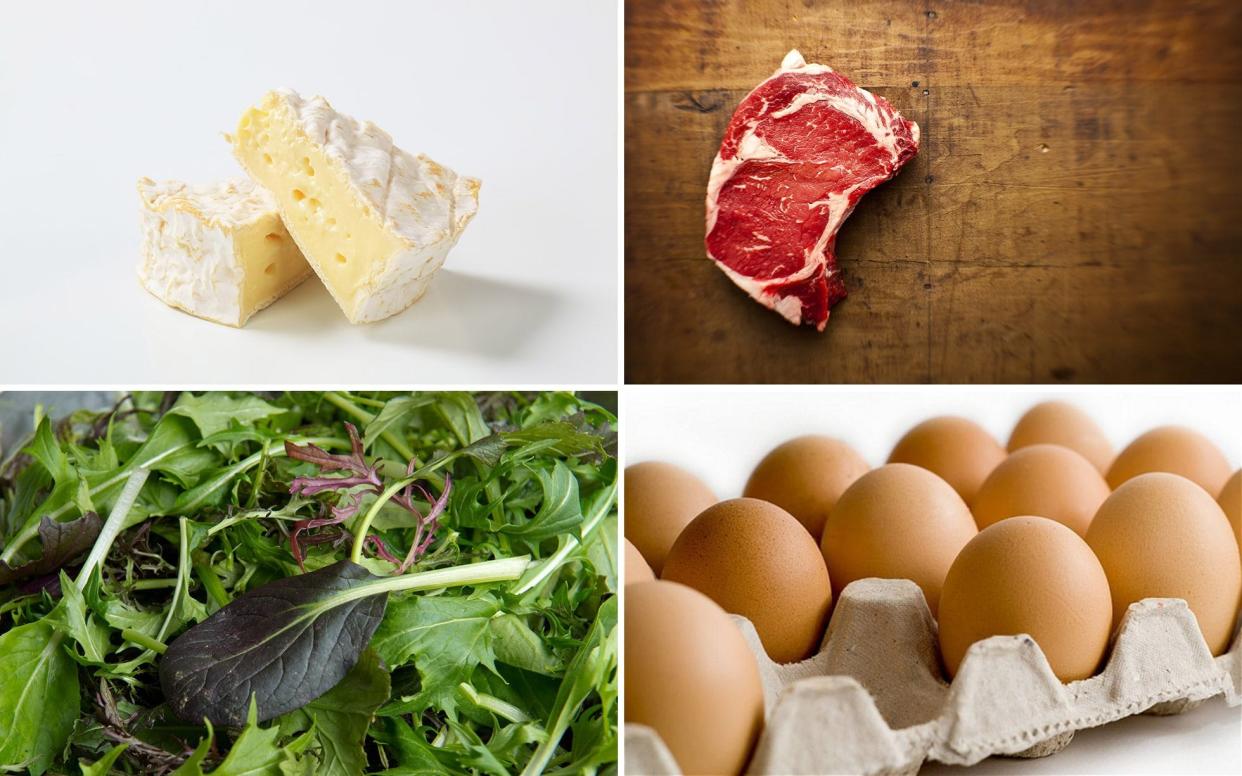
A number of Britain's supermarkets are pledging to halve food waste by 2030, it was announced today.
Retailers including Tesco, Sainsbury’s, Waitrose and Nestle are set to offer discounts on food that would previously have been considered past its best and removed from sale, and will also renew their drive to redistribute surplus food to those in need.
These efforts are an attempt to combat what Ben Elliot, the Government’s food waste champion, has described as a “food waste epidemic”, with £20 billion worth of food binned annually, averaging £500 a year per household.
So, with the UK finally ready for a “food waste revolution”, it seems an opportune moment to peer into the contents of our own fridges and cupboards and consider what foods should be eaten up, which could be saved for later and which should non-negotiably be thrown away for our own safety.
If purchasing discounted food that’s either past its “best before” date or which has a looming “use by” date, understanding what these terms mean will help you to plan your meals and make sure your thrifty purchases don’t go to waste, after all.
What’s the difference between "sell by", "best before" and "use by" dates?
Display until/sell by
You can completely ignore any “display until” or “sell by” labels. Used by retailers for stock control purposes, they aren’t required by law and are instructions for shop staff, not for shoppers.
Best before
If a product is labelled “best before”, you can use common sense to decide when it is no longer fit to eat. Examples might commonly include frozen, dried and tinned foods, as well as some fresh foods like potatoes and onions.
Last year, Tesco even removed "best before" dates from most of its fresh fruit and vegetable packs, including apples, tomatoes and lemons.
They are a guideline rather than a hard and fast recommendation, and some campaigners believe they are arbitrary and can even encourage needless food waste.
The Food Standards Agency states that “the best before date, sometimes shown as BBE, is about quality and not safety. The food will be safe to eat after this date but may not be at its best.”
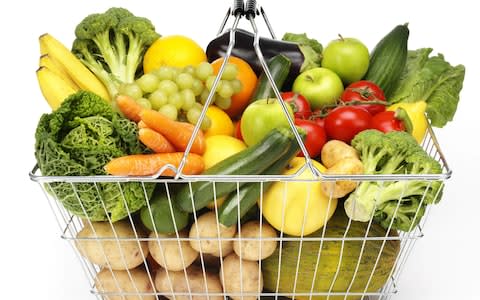
So, feel free to ignore the “best before” label on foods such as tinned tomatoes, biscuits (apparently you can stick them in the oven if they’ve merely lost their “crunch”), dried pasta and strawberry jam (just like Theresa May) – as long as the food in question doesn’t make you involuntarily recoil due to an unusual appearance, funky smell or disconcerting texture or taste (perhaps due to the way it has been stored), it should be fine.
And if you are worried about consuming food long after its “best before”, nutritionist Kim Pearson recommends organisation and regular “stock rotation” in your kitchen. Just put the oldest foods at the front, and the newest at the back.
Use by
While “best before” dates are open to interpretation, certain foods may contain harmful bacteria and if stored for too long or at the wrong temperature can cause food poisoning.
Unlike “best before” recommendations, “use by” dates are about safety and food hygiene, and according to Pearson, you should never, ever eat food past its “use by” date - in any circumstances.
Smoked fish, meat products like chicken and beef (although not so much cured meats, such as salami) and ready-prepared salads usually have a “use by” date.
As the Food Standards Agency warns: Don’t trust the sniff test. Food can look and smell fine even after its use-by date, but that doesn't mean it's safe to eat. It could still be contaminated, and you cannot see, smell or taste the bacteria that causes food poisoning.
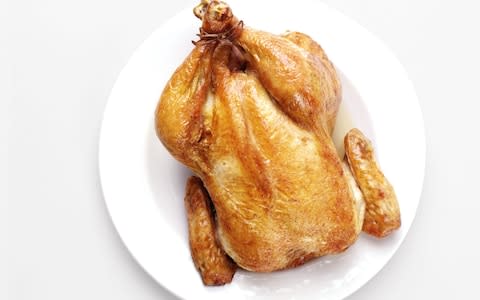
“After the use-by date, don't eat it, cook it or freeze it. The food could be unsafe to eat or drink, even if it has been stored correctly and looks and smells fine,” the Food Standards Agency states (however, some foods, including meat and milk, can be frozen before the use-by date).
A word of warning: even if the food is within its “use by” date, you still need to be careful. For it to be a valid guide, you need to follow the storage instructions.
For example, if the packaging says “refrigerate after opening”, you should keep the food in a fridge at 5°C or below (so there’s no sense in doing your weekly food shop if you know your grocery bags will need to be left sweltering in a hot car afterwards).
And according to the NHS, once a food with a "use by" date on it has been opened, you also need to follow any instructions, such as "eat within 3 days of opening".
When is it safe to ignore the label – and when do you need to be extra careful?
Ready-to-eat salads
Mixed greens and bagged salads might seem an unlikely suspect, but they have a tendency to contain potentially harmful bacteria and usually have a use-by date that’s worth sticking to.
Last year, one study even showed that broken leaves in bags of prepared salad may dramatically increase the risk of salmonella. Juice from damaged leaves can boost growth of the food poisoning bug more than 2,400-fold, scientists discovered. Experts warned consumers to avoid ready-cut salad if possible, to rinse bagged salad thoroughly, and not to let it get warm. And that’s not even to mention the single-use plastic packaging.
So, say no to slimy spinach, and eat up the rest of the rocket before it’s too late.
Eggs
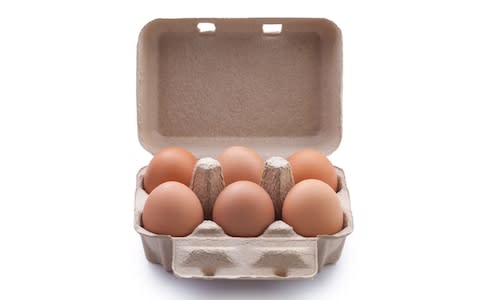
Eggs are a contentious item. Surprisingly, eggs have a “best before” rather than a strict “use by” date. Some people say that storing them in the fridge at a temperature below 5C (41F) can prevent the growth of salmonella for a few weeks after that, but the NHS states that eggs have a shelf life of 28 days (from date laid to best before date). “By law, eggs must reach the final consumer within 21 days from the date they have been laid. This date is known as the sell-by date.
After this date, the quality of the egg will deteriorate. If any salmonella bacteria are present, they could multiply to high levels and could make a person ill.” And always beware of any unpleasant odour – it could be a sign of a rotten egg.
To determine whether eggs are safe to eat, some people even swear by this simple trick: put them into a jug of cold water. If they sink, they're fresh and perfectly fine to eat. If they sit on the bottom but point upwards, they're on their way out - and if they float, steer well clear.
Whisky
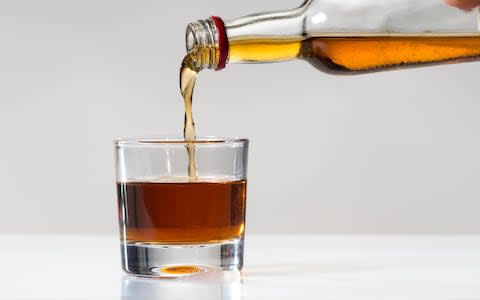
Hard spirits such as vodka and whiskey won't make you ill if you drink them years after their best before date has expired – so feel free to polish off that bottle that’s been gathering dust with abandon. Make sure to put the glass bottle in the recycling once you’ve finished, and your conscience will be clear.
Brie
Hard cheese, such as cheddar and Parmesan, is safe to eat after its best-before date (and can even be grated and frozen). Even if these cheeses have turned mouldy, the inside will still be safe to eat, and can often last three to six weeks (just scrape off the mould). In fact, not all dairy products have as strict a use by date as you might think. Sour milk is safe to drink and isn't going to make you ill, and can even be useful in baking (think scones, cakes or pancakes) or in making kefir, so you can use it up instead of needlessly wasting it. You can also freeze milk and butter for up to three months.
However, you should never eat soft cheeses, such as brie and cream cheese, past the “use by” date, and they should usually be consumed a week after opening (as if we needed an excuse to polish off the Camembert).
Do you ever ignore best-before dates? What's the biggest risk you've ever taken to avoid food going to waste? Tell us in the comments section below.
The Telegraph values your comments but kindly requests all posts are on topic, constructive and respectful. Read our community guidelines in full here.

